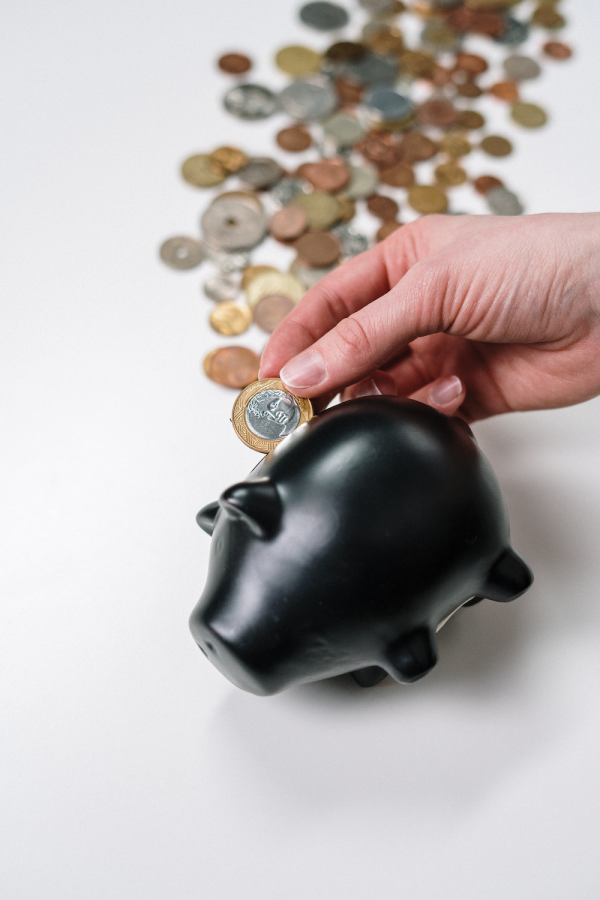Banking going bust
Opinion Columnist Drew Hill breaks down the impact the Silicon Valley Bank has had and the panic it has created in regards to the future of banking.
Mar 22, 2023
On March 10, 2023, the Silicon Valley Bank in Santa Clara, Calif., failed. It was the 16th largest bank in the United States, according to Ken Sweet of AP News. The massive bank mainly served technology companies and venture capital firms. The collapse is the largest since 2008. It was preceded by the collapse of Silvergate Bank on March 8, 2023, and followed two days later by the collapse of Signature Bank. If those three banks failing were not enough, a large bank in Switzerland, Credit Suisse, nearly failed before being taken over by UBS, another massive Swiss bank. All of this turmoil with giant banks has led to concerns about a potential banking crisis, similar to what happened during the Great Recession in 2008. For example, the Federal Reserve loaned out nearly $153 billion through the discount window last week, according to Jeff Cox of CNBC. This actually topped 2008 levels
Despite the panic, however, it may not affect most people. FDIC insurance guarantees up to $250,000 for each person in FDIC insured banks. For most people and smaller banks, that would cover their accounts. Therefore, most people wouldn’t lose their money. However, the majority of customers at Silicon Valley Bank had much larger accounts, so that’s why they did not immediately get their money. Credit Suisse has a history of bad management and scandals, according to an article by Myriam Balezou in The Washington Post. These incidents may be isolated.
There are some concerning signs, though. Your money is likely guaranteed if it is in an FDIC insured bank. However, the worldwide connected nature of today’s financial system can cause one bank’s collapse to send shockwaves throughout the world’s economy. Fear has caused some markets to drop as investors pull their money. Inflation was an indirect cause of the collapses. The Federal Reserve’s response to the inflation has been to raise interest rates. Many banks invest in bonds. The rising interest rates make bond values go down, making them less profitable. Part of what caused the Silicon Valley Bank collapse was wealthy depositors rushing to withdraw money, which forced the bank to try to sell those bonds. This caused them to lose money, leading the bank to default.
One important way to be sure this does not become a banking crisis is to avoid panicking and withdrawing your money from banks for fear of collapse. Most banks will be fine through this, unless there is a widespread “run on the banks.” Even if a local or regional bank did fail, FDIC insurance would likely cover your account. Banks do not hold the money for every customer’s account at one time. They loan out the money to other customers. The Federal Reserve controls a reserve ratio, or how much the banks must hold for withdrawals. This is why banks give interest for CDs and savings accounts. These are really loans to the bank, who loan the money to other people and companies. If too many people came to withdraw their money at one time, the bank might not have enough reserves. If they could not borrow the money from the Federal Reserve or other banks, they could default. This is why a run on the banks could be dangerous. Runs on the banks caused bank defaults in the Great Depression and 2008 Recession.
Even though the majority of Americans may not be directly affected by the volatility in the bank markets, besides potential increased difficulty getting loans, there are some negative effects from some of the multi-million-dollar maneuverings. After 2008, the idea of certain banks and businesses being “too big to fail” became popular. What this means is that those companies are so large and interconnected in the worldwide financial sector that collapsing could devastate the world economy. To deal with this problem, a system of bailouts, emergency loans and tighter regulations was put in place. This, however, has its own issues.
When the government decides to rescue companies that it deems too big or important to fail, it runs counter to the way capitalism should work. Under a truly capitalistic system, the market and the people determine what companies stay in business. If large companies fail, though the economy may suffer for a time, it will eventually adjust and recover. However, when the government and massive banks bail out those companies, it hurts the small businesses and local banks who were not going under. It leads to even larger companies and banks as they merge. Local businesses rarely receive the same benefits, giving those larger companies that almost failed an advantage.
While keeping an eye on the banking markets can be useful, be careful about reading too much into them. Enough people panicking and withdrawing their money could cause a run and hurt banks even more. Continuing to support small businesses and local banks is also important. The big corporations and banks will likely continue to bail each other out with help from governments, which could continue to play havoc with our capitalistic system. Hopefully common sense and the free market will prevail.









